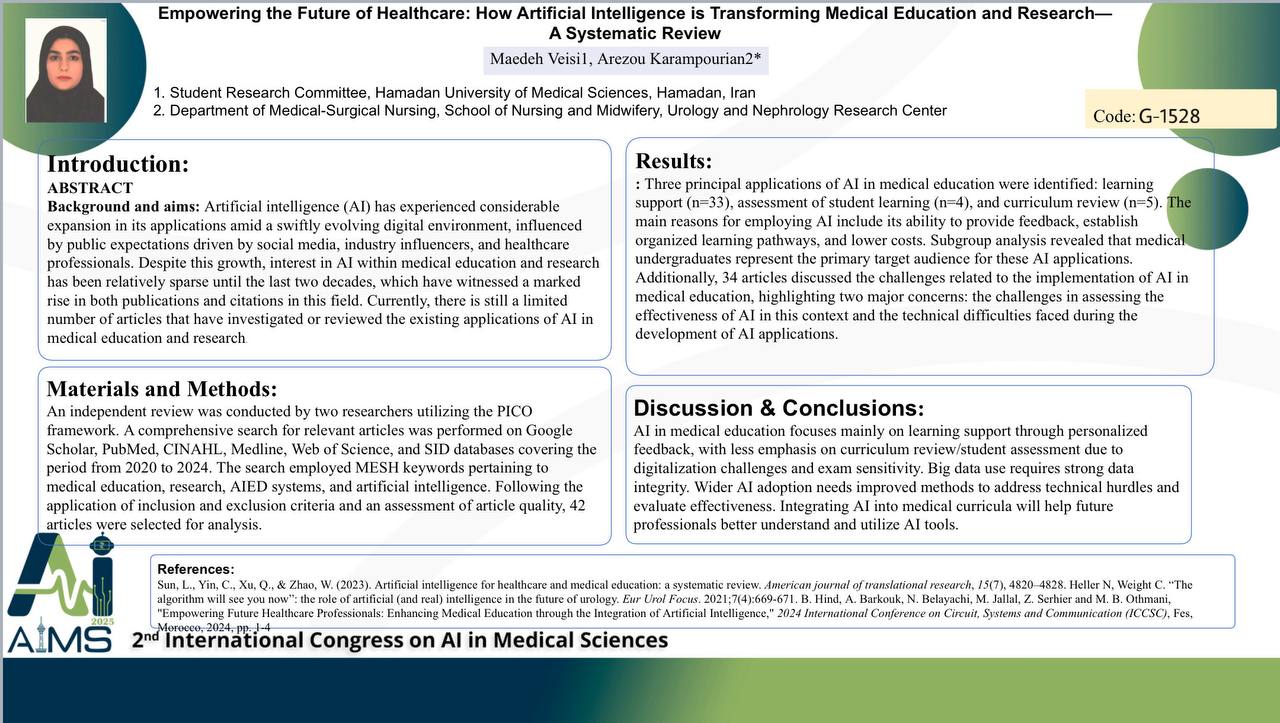Empowering the Future of Healthcare: How Artificial Intelligence is Transforming Medical Education and Research—A Systematic Review
Code: G-1528
Authors: Maedeh Veisi ℗, Arezou Karampourian *
Schedule: Not Scheduled!
Tag: Intelligent Virtual Assistant
Download: Download Poster
Abstract:
Abstract
Background and aims: Artificial intelligence (AI) has experienced considerable expansion in its applications amid a swiftly evolving digital environment, influenced by public expectations driven by social media, industry influencers, and healthcare professionals. Despite this growth, interest in AI within medical education and research has been relatively sparse until the last two decades, which have witnessed a marked rise in both publications and citations in this field. Currently, there is still a limited number of articles that have investigated or reviewed the existing applications of AI in medical education and research. Method: An independent review was conducted by two researchers utilizing the PICO framework. A comprehensive search for relevant articles was performed on Google Scholar, PubMed, CINAHL, Medline, Web of Science, and SID databases covering the period from 2020 to 2024. The search employed MESH keywords pertaining to medical education, research, AIED systems, and artificial intelligence. Following the application of inclusion and exclusion criteria and an assessment of article quality, 42 articles were selected for analysis. Results: Three principal applications of AI in medical education were identified: learning support (n=33), assessment of student learning (n=4), and curriculum review (n=5). The main reasons for employing AI include its ability to provide feedback, establish organized learning pathways, and lower costs. Subgroup analysis revealed that medical undergraduates represent the primary target audience for these AI applications. Additionally, 34 articles discussed the challenges related to the implementation of AI in medical education, highlighting two major concerns: the challenges in assessing the effectiveness of AI in this context and the technical difficulties faced during the development of AI applications. Conclusion: AI in medical education focuses mainly on learning support through personalized feedback, with less emphasis on curriculum review/student assessment due to digitalization challenges and exam sensitivity. Big data use requires strong data integrity. Wider AI adoption needs improved methods to address technical hurdles and evaluate effectiveness. Integrating AI into medical curricula will help future professionals better understand and utilize AI tools.
Keywords
Medical Education, AIED Systems, Artificial Intelligence
